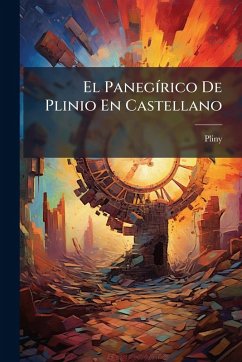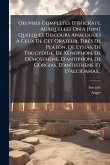This is a Spanish translation of Pliny the Younger's "Panegyricus," a speech delivered to the Roman Emperor Trajan in 100 AD. "El PanegÃ-rico De Plinio En Castellano" offers valuable insights into the political and social climate of the early Roman Empire. It showcases Pliny's masterful use of rhetoric and provides a glowing account of Trajan's virtues and achievements. This edition allows Spanish speakers to access this important work of classical literature, offering a window into Roman history and the art of persuasive oratory. This work has been selected by scholars as being culturally important, and is part of the knowledge base of civilization as we know it. This work was reproduced from the original artifact, and remains as true to the original work as possible. Therefore, you will see the original copyright references, library stamps (as most of these works have been housed in our most important libraries around the world), and other notations in the work. This work is in the public domain in the United States of America, and possibly other nations. Within the United States, you may freely copy and distribute this work, as no entity (individual or corporate) has a copyright on the body of the work. As a reproduction of a historical artifact, this work may contain missing or blurred pages, poor pictures, errant marks, etc. Scholars believe, and we concur, that this work is important enough to be preserved, reproduced, and made generally available to the public. We appreciate your support of the preservation process, and thank you for being an important part of keeping this knowledge alive and relevant.
Bitte wählen Sie Ihr Anliegen aus.
Rechnungen
Retourenschein anfordern
Bestellstatus
Storno




![Historia Del Imperio Romano Desde El Año 350 Al 378 De La Era Cristiana: Vertida Al Castellano Por F. Norberto Castilla [pseud.]... Historia Del Imperio Romano Desde El Año 350 Al 378 De La Era Cristiana: Vertida Al Castellano Por F. Norberto Castilla [pseud.]...](https://bilder.buecher.de/produkte/68/68842/68842091m.jpg)
![Valerio Massimo De' Fatti E Detti Degni Di Memoria [Tr. by A. Lancia?] Testo Riscontrato E Pubbl. Da R. De Visiani Valerio Massimo De' Fatti E Detti Degni Di Memoria [Tr. by A. Lancia?] Testo Riscontrato E Pubbl. Da R. De Visiani](https://bilder.buecher.de/produkte/74/74860/74860433m.jpg)


